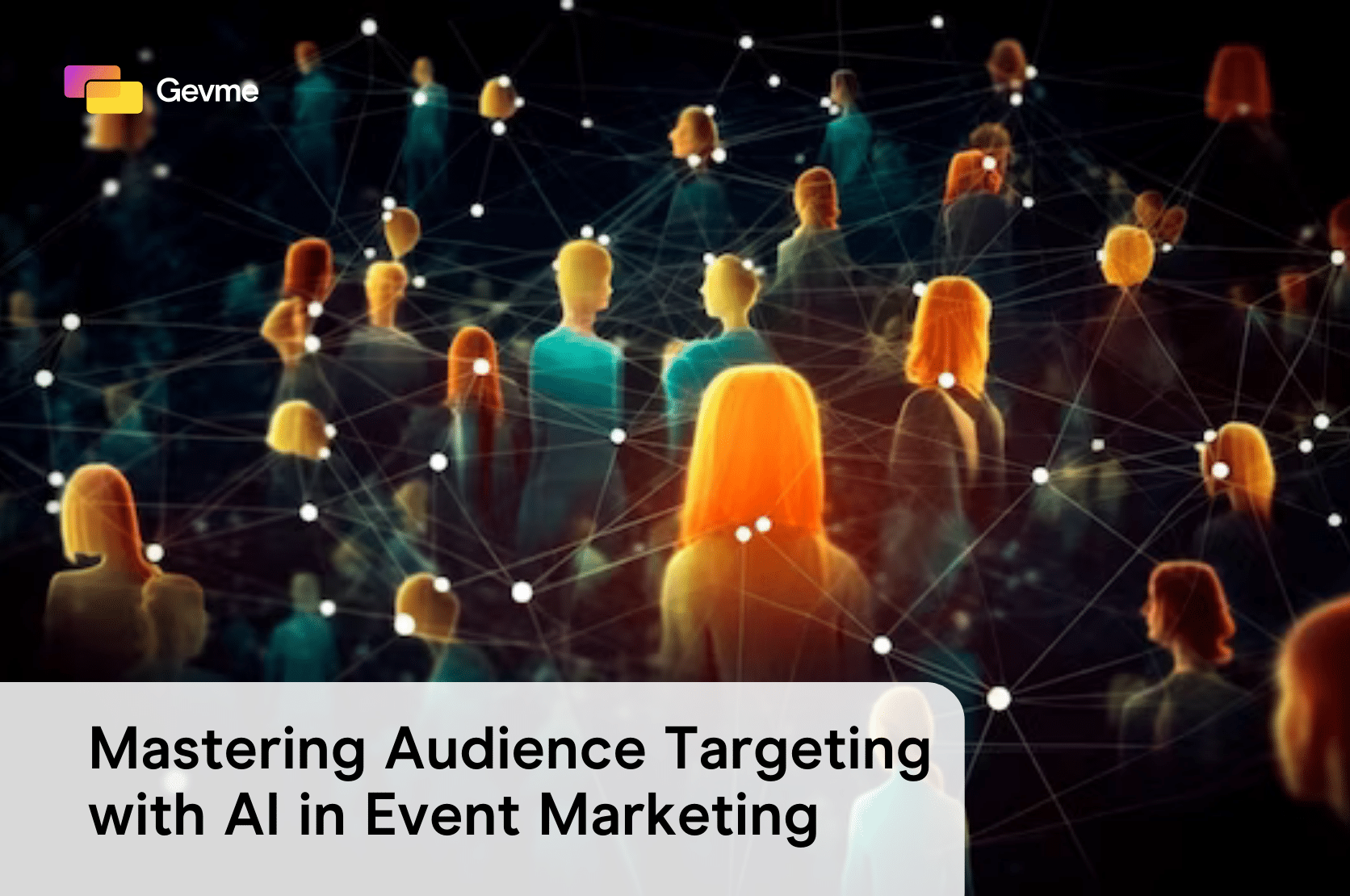In today’s digital era, event marketing is undergoing a significant transformation, driven by the integration of AI in events. This blog explores how AI is reshaping the landscape of event marketing, particularly in customizing marketing strategies and targeting specific audiences. With AI’s advanced capabilities, event marketers are able to create more effective, personalized campaigns that resonate with their target audience, ensuring higher engagement and success rates for events.

The Rise of AI in Event Marketing
AI in event marketing is completely reshaping the event landscape:
- Data-Driven Audience Insights: AI comprehensively analyzes data to uncover deep insights into audience behaviours and preferences, delving into aspects like browsing patterns, interaction with past marketing materials, and social media engagement. This enables AI in events to provide a nuanced understanding of what drives audience interests, helping to craft highly targeted campaigns.
- Enhanced Customer Segmentation: AI’s advanced segmentation capabilities involve dissecting audience data into increasingly specific subgroups. This granular segmentation is based on a multitude of factors, from demographic data to behavioral patterns, enabling marketers to target these groups with unprecedented precision.
- Personalized Content Creation: AI takes personalized content to the next level, utilizing data insights to tailor messages, visuals, and even the timing of content delivery to align perfectly with the audience’s preferences and behaviors, thereby enhancing the relevance and effectiveness of marketing efforts.
- Predictive Analytics for Campaign Success: AI’s predictive analytics extends to analyzing vast datasets to forecast the potential success and reach of marketing campaigns. This involves evaluating various factors like audience responses to similar past campaigns, current market trends, and the effectiveness of different marketing channels.
- Automated Campaign Management: AI in event marketing revolutionizes campaign management by automating key processes such as content distribution, response tracking, and engagement analysis. It continuously refines marketing strategies based on real-time data, ensuring that campaigns are agile and responsive to audience behaviors.
- Real-time Adaptation and Optimization: AI’s real-time adaptation capabilities enable marketers to modify strategies on the fly based on audience feedback and engagement metrics. This ensures that marketing campaigns are constantly evolving and staying relevant to the audience’s current interests and needs.
- Improved ROI Measurement: AI provides detailed and accurate measurements of marketing ROI, employing sophisticated algorithms to track various metrics like conversion rates, engagement levels, and overall campaign reach, offering a comprehensive view of each campaign’s performance.

Understanding Audience Targeting with AI
Innovations in AI in event marketing have revolutionized audience targeting:
- Identifying Target Audiences: AI’s deep learning capabilities extend to analyzing comprehensive behavioural data and engagement patterns, identifying potential target audiences based on a wide array of factors, including detailed demographics, online browsing behaviours, past event interactions, and specific interests.
- Segmentation for Tailored Marketing: AI takes segmentation to a new level, categorizing audiences into highly specific groups. This segmentation is not just based on basic demographics but also on nuanced factors like lifestyle choices, content preferences, and interaction histories, enabling highly tailored marketing approaches.
- Behavioral Pattern Analysis: AI excels in understanding subtle nuances in behavioural patterns, analyzing both individual and collective tendencies. It picks up on trends in content interaction, session participation, and feedback, using these insights to craft marketing strategies that resonate with different audience segments.
- Predictive Audience Modeling: AI employs sophisticated modeling techniques to predict future audience behaviors and preferences. This foresight allows marketers to design strategies that are not only reactive but also proactive, addressing audience needs even before they fully emerge.
- Enhancing Customer Profiles: AI’s capability to continually enrich customer profiles with latest data ensures that marketing strategies evolve with changing audience preferences, keeping campaigns relevant and impactful over time.
- Integration with Social Media Analytics: By integrating social media analytics, AI offers a holistic view of audience behavior across platforms. This includes sentiment analysis, trend spotting, and influencer interactions, providing a rich tapestry of data to inform targeted marketing strategies.
- Real-time Adaptation to Audience Response: AI systems dynamically adjust marketing strategies based on real-time audience responses. This involves shifting campaign focus, altering content delivery, and even changing communication channels to align with current audience engagement levels.

Customizing Marketing Content with AI
AI’s role in customizing marketing content for events is a game-changer:
- Dynamic Content Creation: AI’s capabilities in dynamic content creation involve analyzing individual user interactions and preferences to personalize every aspect of marketing content, from the subject line to the call-to-action.
- Contextual Relevance: AI ensures that each piece of content is not only tailored to the audience but is also contextually relevant, taking into account current trends, seasonal factors, and even local cultural nuances.
- A/B Testing and Optimization: Through automated A/B testing, AI evaluates numerous content variations, scrutinizing how different segments respond to variations in messaging, design, and timing, thus continuously optimizing the content for maximum impact.
- Language and Tone Adaptation: AI’s language and tone adaptation extends to understanding the nuances of different audience groups, customizing content to match their communication style, preferences, and level of formality.
- Visual Content Personalization: AI’s personalization of visual content goes beyond basic preferences, considering factors like historical engagement data and psychographic information to select visuals that will resonate the most with each segment.
- Predictive Content Performance: AI predicts content performance by analyzing past engagement metrics and current audience behaviors, providing insights into what types of content will likely drive the most interaction and conversions.
- Real-time Content Updating: AI enables marketing content to be updated in real-time, responding to live audience interactions, feedback, and changing preferences, keeping the content dynamic and engaging throughout the campaign.
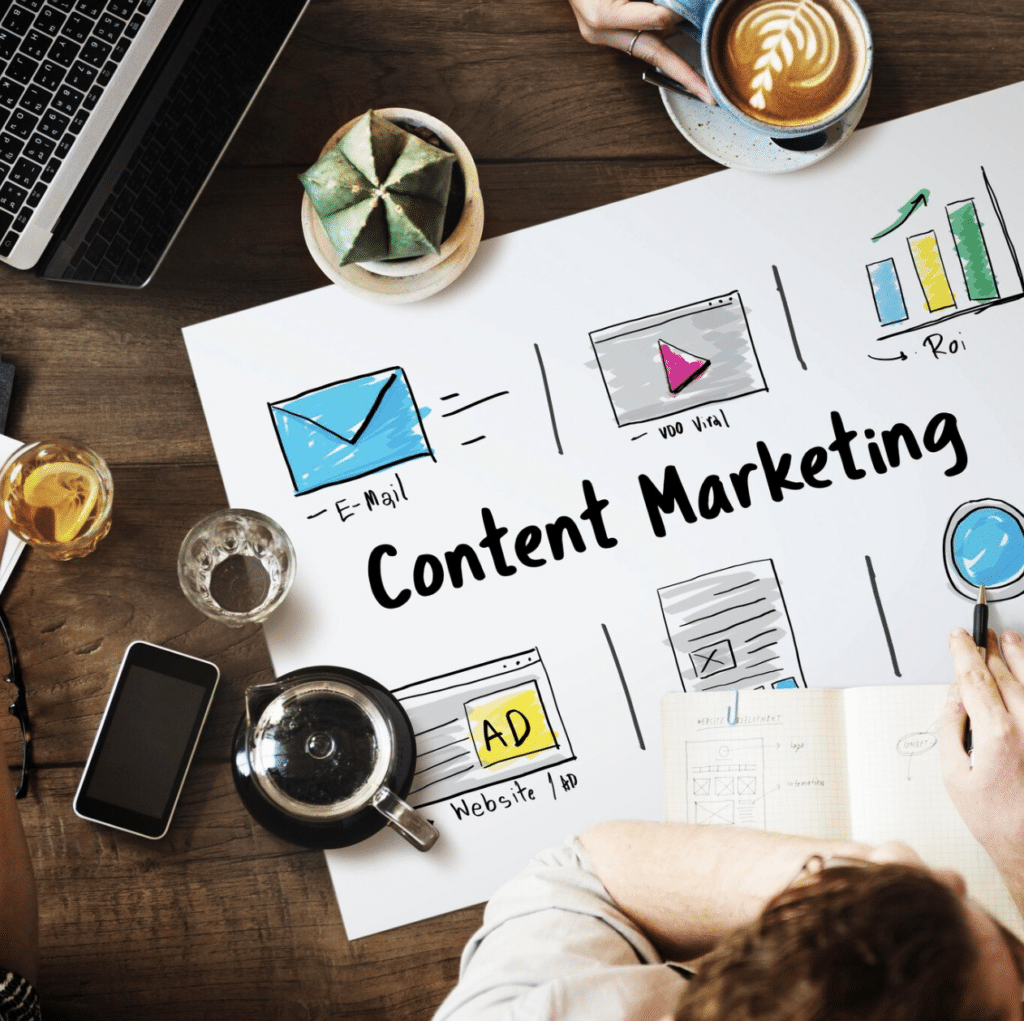
Enhancing User Engagement Through AI
AI’s innovative approaches in event marketing significantly enhance user engagement:
- Interactive Campaign Elements: AI not only adds interactive elements like quizzes and polls but also personalizes them based on user data, creating more engaging and relevant experiences that encourage active participation.
- User Behavior Tracking and Response: Beyond simple tracking, AI deeply analyzes user behavior across various platforms, identifying subtle preferences and trends. This allows for the creation of highly tailored content strategies that resonate with users on a more personal level.
- Engagement Analytics: AI’s analysis of engagement metrics includes understanding user interactions, time spent on different content, and response rates. This detailed analysis helps in fine-tuning content strategies to maximize user engagement.
- Customized User Journeys: AI crafts user journeys by mapping individual interactions, preferences, and engagement history, creating a unique and highly personalized marketing path for each user.
- AI-Driven Chatbots for Instant Interaction: AI-driven chatbots do more than provide instant responses; they offer personalized assistance, learning from each interaction to improve recommendations and support, thereby enhancing the user experience.
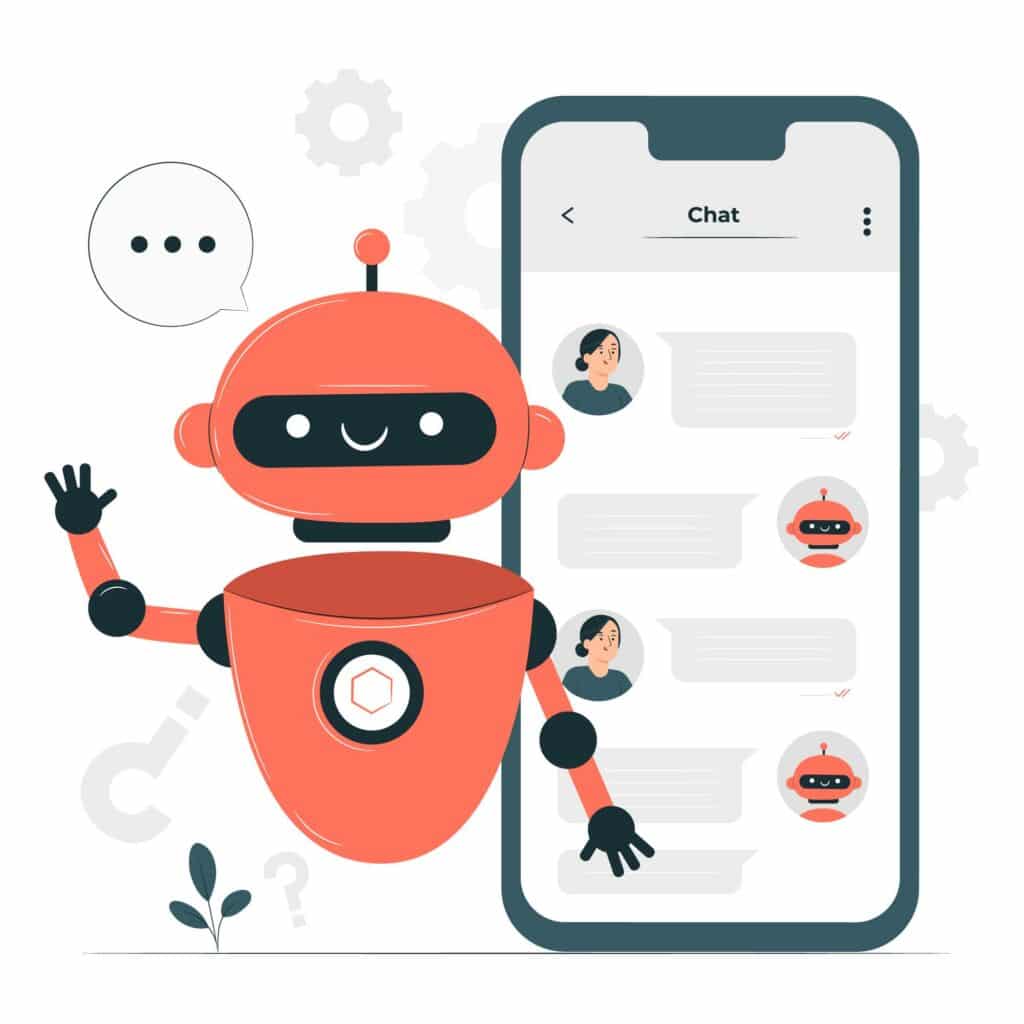
- Gamification Techniques: AI employs sophisticated gamification techniques, using data-driven insights to create engaging, enjoyable experiences that are not just fun but also tailored to user preferences, increasing engagement and loyalty.
- Real-time Engagement Adaptation: AI’s real-time adaptation capabilities ensure that marketing strategies are always aligned with current user engagement levels and preferences, allowing for dynamic adjustments to maintain high levels of interaction.
AI in Predictive Marketing
The implementation of AI in events for predictive marketing is revolutionizing event marketing strategy development:
- Predictive Audience Trends: AI’s analysis extends beyond current data, delving into detailed historical engagement and behavioural trends. This comprehensive analysis allows for precise prediction of future audience interests and needs, facilitating the design of highly relevant and targeted marketing strategies.
- Optimizing Marketing Channels: AI’s predictive models evaluate the efficacy of various channels based on audience engagement history, content preferences, and channel performance. This approach not only identifies the most effective platforms for different segments but also predicts the best times and formats for content delivery.
- Forecasting Campaign Success: AI employs complex algorithms to predict the potential success of various marketing strategies, analyzing a range of factors from historical campaign performance to current market dynamics. This foresight enables better resource allocation and strategic planning, increasing the likelihood of campaign success.
- Personalized Marketing Forecasts: AI offers personalized forecasts for different audience segments, analyzing each group’s unique characteristics and preferences. This leads to the creation of highly customized marketing strategies that align with the specific expectations and interests of each segment.
- Predictive Budget Allocation: By leveraging AI for predictive budgeting, marketers can effectively allocate funds to the most impactful areas. AI analyzes past budget allocations and their outcomes, enabling a data-driven approach to financial planning that maximizes return on investment.
- Identifying Emerging Market Opportunities: AI’s ability to scan and analyze market trends provides insights into emerging opportunities. This proactive approach helps marketers tap into new audience segments, explore innovative marketing channels, and capitalize on evolving market trends before they become mainstream.
- Risk Assessment in Marketing Strategies: AI’s risk assessment tools evaluate potential pitfalls and challenges in marketing strategies. This includes predicting audience reception, assessing the likelihood of logistical issues, and identifying potential market shifts that could impact campaign effectiveness.
Challenges in Implementing AI in Marketing
The integration of AI in event marketing, while beneficial, comes with its own set of challenges:
- Complexity of AI Systems: The complexity of AI systems can be a significant barrier, requiring specialized knowledge for implementation and maintenance. Understanding the intricacies of AI algorithms and ensuring they align with marketing objectives can be challenging for teams without a strong technical background.
- Data Privacy and Ethical Concerns: The use of AI in marketing raises substantial data privacy and ethical concerns. Navigating these issues requires a thorough understanding of data protection laws, ethical marketing practices, and ensuring transparent use of attendee data.
- Integration with Existing Marketing Tools: Integrating AI with current marketing tools and platforms often involves overcoming technical hurdles. Ensuring compatibility and seamless integration while maintaining the functionality of existing systems can require extensive time and resources.
- Training and Skill Development: Successfully employing AI tools in marketing requires significant investment in training and skill development. Teams need to be educated not just on the technical aspects but also on the strategic application of AI in marketing.
- Dependence on Quality Data: The effectiveness of AI is heavily dependent on the availability of high-quality, accurate data. Establishing reliable data collection, processing, and management systems is crucial for AI to function effectively.
- Balancing Automation with Human Creativity: Striking a balance between the efficiency of AI automation and the irreplaceable value of human creativity and intuition is crucial. Ensuring that AI complements rather than replaces human insight remains a key challenge.
- Keeping Up with Rapid Technological Advances: The fast-paced evolution of AI technology necessitates continuous learning and adaptation. Staying abreast of the latest advancements and integrating them effectively into marketing strategies can be a daunting task.
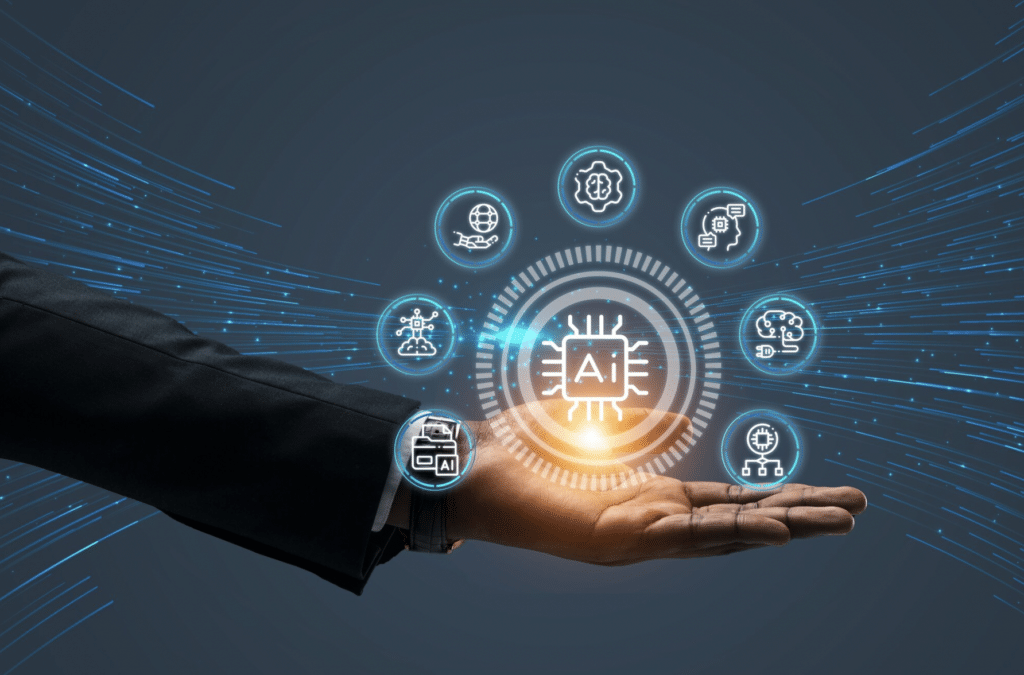
The Future of AI in Event Marketing
The trajectory of AI in event marketing is set towards significant advancements:
- Advanced Personalization Techniques: AI will evolve to provide hyper-personalization in marketing, using deeper learning algorithms to understand individual user nuances. This includes predicting preferences, tailoring user experiences, and customizing content in unprecedented detail.
- Integrated Multi-Channel Marketing: Future AI will enable more sophisticated multi-channel marketing strategies. This involves seamlessly integrating messaging and content across various digital platforms, ensuring a unified and consistent user experience.
- Evolution of Predictive Analytics: Predictive analytics will become more refined, offering precise insights into future audience behaviours and preferences. AI will analyze more complex datasets, providing event marketers with strategic foresight into campaign planning and audience engagement.
- Enhanced Real-Time Interaction: AI will offer enhanced capabilities for real-time marketing interactions. This includes dynamic content adaptation during campaigns, immediate audience feedback analysis, and agile marketing strategy adjustments.
- Greater Emphasis on User Privacy: As AI in event marketing continues to advance, the emphasis on user privacy will intensify. Future AI systems will be designed to balance sophisticated personalization with robust privacy protections, ensuring ethical data usage.
- Automated Creative Processes: AI’s role in the creative aspects of marketing will expand, automating and enhancing creative processes. AI might generate innovative content ideas, design layouts, and even creative copy, complementing human creativity.
- Continuous Learning and Adaptation: Future AI systems will feature advanced continuous learning capabilities, constantly evolving and adapting to new data, marketing trends, and audience feedback, thereby optimizing marketing strategies over time.
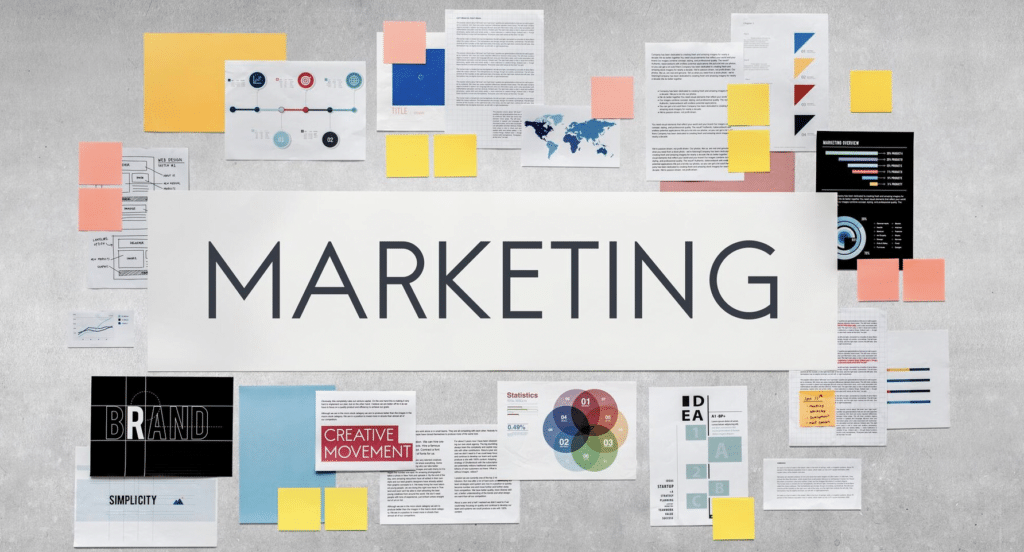
Conclusion
As we explore the evolving landscape of AI in event marketing, it’s clear that the future holds immense potential for even more personalized and effective strategies. Platforms like Gevme are already tapping into the power of AI, offering tools that align with these advancements, enhancing user engagement and marketing success. The continuous evolution of AI in events promises to further refine the art of event marketing, making it more targeted, efficient, and impactful. This journey with AI at the helm is not just about keeping pace with technology but about leveraging it to create memorable and successful events.
